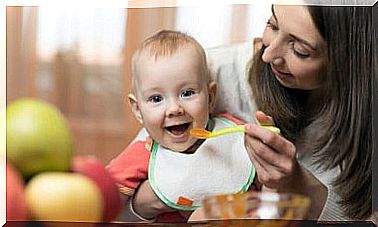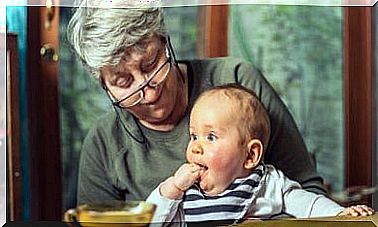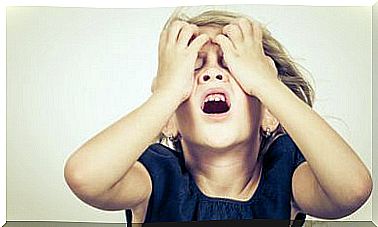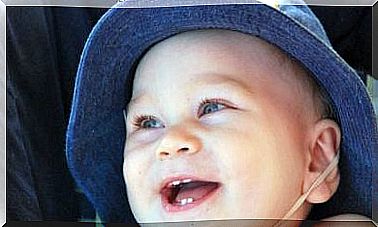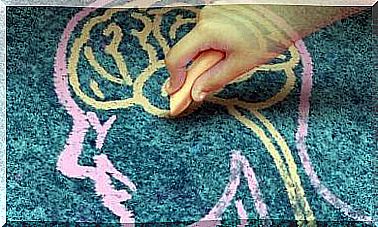What Are Helicopter Parents?

You’ve probably heard about helicopter parents, but you’re not quite sure what that term refers to. Here we give you a definition and help you find out if you are one of them.
The meaning of helicopter parents
The term “helicopter parents” was born in 1969, when Dr. Haim Ginott wrote the book “Parents and Teens” (free translation). During several interviews conducted to gather information, he noticed that many teenagers said they felt their parents were on them, like helicopters.
Ginott took this term and used it in his book. Then, in 2011, the term was officially adopted and some dictionaries began to include its meaning.
Helicopter parents are parents who focus too much on their children. Typically, they take a lot of responsibility for their children’s experiences, successes, and failures. They are characterized by wanting to be everywhere and go to extremes when it comes to protection, excessive control and intense pursuit of perfection.
Who is the helicopter dad or mom?
A helicopter parent can be anyone. However, it has been observed that parents of teenagers are more susceptible to being helicopter parents. They are characterized by taking responsibility for tasks that correspond to their children such as:
- organize tasks;
- ask teachers questions about classes;
- excessively controlling exercise habits;
- choose friends;
- to provide tremendous help to your children;
- perform the most complex school tasks for your child.
As we said, at any age, the behavior of the helicopter parent can emerge, but it is believed that the risk increases in adolescence.
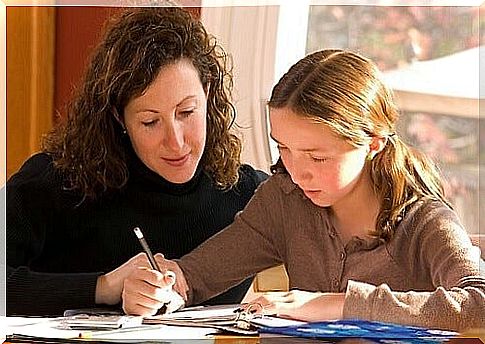
The motives of helicopter parents
Helicopter parents have different reasons for this behavior, and each one is different. But the most common reasons are:
1. Fear of negative consequences
The idea that their children don’t fit into a group, have low grades, or don’t get a certain type of job can seem very serious to these parents. In an attempt to avoid any mishap, they will focus on preventing their children’s suffering.
The ironic thing about the situation is that what they seek to prevent is what they end up doing to their children:
- unhappiness;
- stress;
- rejection;
- excess of work;
- uncertain results.
2. Anxiety
Some helicopter parents are very concerned about factors such as the economy, work and social issues. This leads them to want their children to achieve good status, which causes them to exert pressure on them as a form of protection.
The main risk of this type of pressure is that children may feel forced to create false relationships. Furthermore, they may learn that economic factors are the most important in life and forget to see the real value of people.
3. Self-compassion
Adults who feel or feel rejection, lack of love, or who were ignored during childhood are at high risk of being helicopter parents. They try to avoid all the things that were so negative to them.
They will seek to supply all the emotional needs in their little ones. But along the way, they run the risk of creating the problems they are trying so hard to avoid. It is important that parents undergo therapy at this stage to learn to separate their experiences from those of their children.
4. Pressure from other parents
We must recognize that living with other parents can generate some pressure and competition. It’s okay to try to be a better parent, but you shouldn’t pressure your child to be better than others.
It’s easy for competitive parents to lose track of the pressure they’re exerting. More and more they will impose new limits until their children can’t resist anymore. The problem is that they can cause your children to develop an enormous sense of guilt.

Consequences of being helicopter parents
Helicopter parents start with the best of intentions. The problem is, the limits are pretty easy to cross. And so many parents end up causing serious problems in their children’s emotions and relationships with them.
It is important that at all times you are available to talk to your child and find out if you are pushing your limits, and of course, knowing how your child is feeling. Your child may say that everything is fine, but you can soon see that self-esteem and self-confidence are being affected. You must learn to see and evaluate the signs to avoid serious damage in the future.
